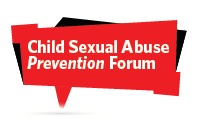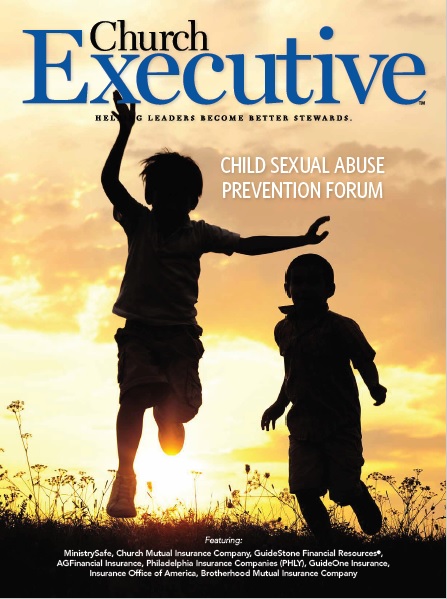
Take these 5 steps — today — to prevent abuse or molestation at your church
 Many pastors believe sexual abuse is beyond the realm of possibility in their churches.
Many pastors believe sexual abuse is beyond the realm of possibility in their churches.
In reality, it happens all too often … and many times, those same pastors aren’t aware until it’s too late to respond responsibly.
The results can be devastating
for all involved, with massive spiritual, emotional, legal and reputational consequences.
Fortunately, there’s a lot you can do.

Vice President
Insurance Office
of America
#1: The first (but certainly not only) step: background checks
Thorough background checks must be conducted for all staff and volunteers who work with children, at any time. That’s a given.
Sadly, however, some perpetrators know how to evade background checks — and they gravitate to where children are. They’re at church.
So, the next step is to acknowledge that a sexual abuse incident could occur at any time, if your church is only doing the bare minimum of background checks. You must mitigate accordingly.
#2: Have a written / formal abuse prevention policy in place
This should include common-sense, transparency-focused measures, such as prohibiting one-on-one, shut-door interactions with children, and making sure parents can easily check in on their kids. Also be sure that the children’s ministry isn’t entirely run by volunteers; a staff member also needs to be involved.
If possible, a specific committee should be formed to update and implement this comprehensive abuse prevention policy.
Additionally, I’ve found the MinistrySafe awareness training offered by Gregory Love and Kimberlee Norris to be the best possible resource in this regard.
#3: When an allegation arises, take action

When an incident occurs, some church leaders’ first instinct is to “handle it” in a way that protects church staff and volunteers. This ignores — very much at the church’s peril — not only the alleged victim’s / family’s needs, but also time-sensitive state laws about abuse and molestation reporting.
Not only must the incident and the staff member or volunteer involved be reported to the authorities, they must also be reported to your insurance carrier as soon as possible.
Aside from the legal obligation to involve your carrier, your insurer can also provide assistance in interacting with the media, as well as proper legal counsel.
No church can afford to try and “make it go away” when an abuse allegation arises — and for so many reasons, it shouldn’t try.
#4: Know the difference between “claims made” and “occurrence”
Essentially, there are two forms of coverage: claims-made and occurrence. Stated as simply as possible, the danger for a church lies in switching from claims-made to occurrence, writing a new policy, as this can create a gap in coverage.
In many states, the statute of limitations for reporting abuse and molestation is now 30-plus years.
Some years ago, many denominations were covered by master policies, many of them written on a claims-made basis.
As such, the switch might mean your church potentially wouldn’t have coverage for an incident that happened decades ago.
Be sure to talk with your agent about claims-made and occurrence before making any policy changes.
#5: Take a hard look at your current insurance policies, coverage
Buying insurance on a cost-first basis is common in churches, and rife with risk. It’s especially dangerous when it comes to your church’s abuse and molestation liability.
I advise purchasing the highest possible limits — no less than a $1 million limit per period. For medium-size churches, I’d recommend $2 million or higher. For larger churches, I’d suggest $5 million plus.
Also ask about the possibility of purchasing a higher limit on an umbrella policy’s abuse sublimit. Doing so will expand your coverage. Of course, at IOA, our responsibilities are inclusive of securing the most comprehensive coverages and limits; however, we’re also aggressive in getting competitive pricing.
Be aware that abuse and molestation is a complex coverage area, and — in my experience — not every insurer writes it correctly. As this is the most serious and potentially damaging threat facing churches today, be sure to seek out a carrier or broker that specializes in working with churches. Aside from abuse and molestation policies, these providers will be familiar with other exposures considered in the policies, including crime policies and employee dishonesty. At IOA, we’re committed to “making the complex simple.”
Although sexual abuse is something no one in the Church wants to think about or talk about, we must protect the children in our care. And we can.


